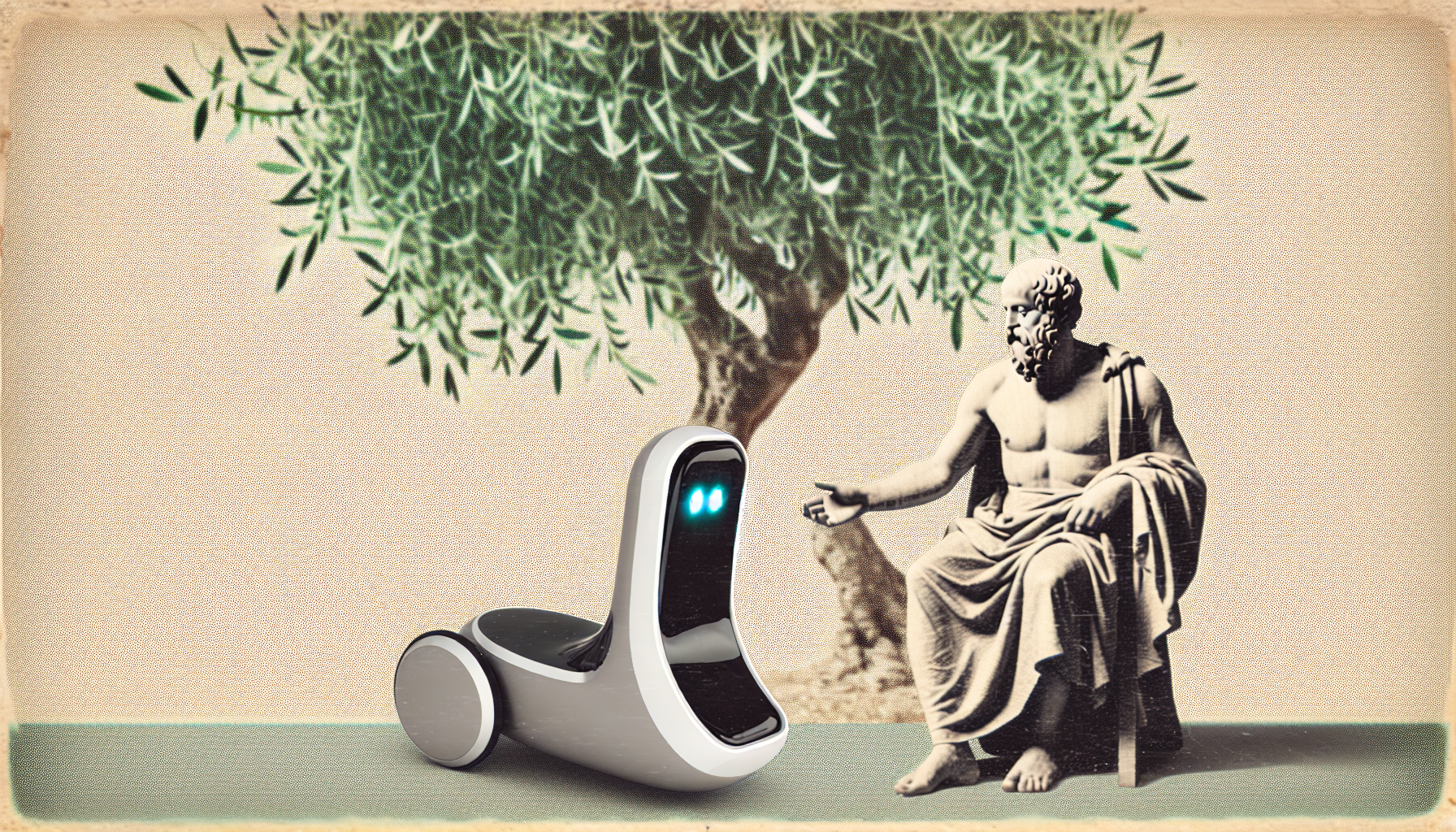Picture this: Socrates, after wandering around Athens engaging the youth in dialogues under an olive tree, decides he needs an upgrade. Rather than relying solely on the locals for robust debates, he picks up a sleek machine the likes of which he’d never imagined. This marvel, let’s name it SocrAI, is capable of answering endless questions with data-driven precision. That’s right, folks; we’re talking about artificially intelligent partners in philosophical inquiry. But can these pixelated Platonic partners really enhance our noble quest for truth?
At first glance, it seems almost heretical to propose that a machine could rival, or even enhance, the pursuits initiated by one of the greatest minds of Western philosophy. Socrates was known for his relentless dialogical method, the Socratic method, which involves asking a series of questions to unravel underlying beliefs—a technique that requires nuance, understanding, and a very human touch of irony. Can machines, with their binary logic and calculative capabilities, genuinely contribute to this reflective exercise? Let’s explore this tantalizing possibility.
Unpacking the Circuitry of Inquiry
Let’s consider what AI brings to the philosophical table—i.e., one not littered with olives and debate, but with algorithms and silicon chips. The one undeniable fact is that AI can process a ridiculous amount of information faster than you can ask, “Why am I in this blog post, anyway?” This impressive data-crunching ability might seem perfect for certain kinds of inquiries; after all, the more data you have, the more informed your philosophical reflection could become.
Imagine engaging with SocrAI to inquire about complex ethical dilemmas—not unlike the trolley problem with a few more tracks and a lot more metaphorical passengers. SocrAI can offer insights from an eclectic mix of philosophical thinkers, model potential outcomes, and provide a substantiated backdrop against which the chains of your own reasoning can clink and clatter. But keep in mind, SocrAI is like that tangential friend who knows a lot of things and wants to let you know all of them—posthaste!
Algorithmic Objectivity: Friend or Foe?
AI, with its penchant for objectivity and dispassionate analysis, can hypothetically be free from the biases that often plague human thought. However, here’s a not-so-spoiler alert: AI systems are created and trained by humans, which means they’re not immune to the biases that color human judgment. AI can normalize and even amplify the biases present in its training data—like that well-meaning friend who insists they don’t have a favorite pizza topping but somehow mushrooms end up on every slice.
While AI offers an enhanced capacity for analysis and logical progression, it lacks the intuitive leaps that often define human insight. The nuance in philosophical inquiry often requires wrestling with ambiguity—a versatile dance that AI is not yet nimble enough to lead. So, do we dare trust our Cartesian doubt and Kantian imperatives to a machine more inclined to think in black-and-white terms?
The (Human) Spark of Creativity
Another limitation of SocrAI lies in its ability to generate genuinely new ideas. Sure, AI can mimic creativity by stitching together existing pieces of content, generating what may pass off as novel perspectives. But can it genuinely hatch a new philosophical egg? The human mind possesses a unique synthetic ability to connect disparate concepts in ways an artificial intelligence currently cannot replicate.
Moreover, philosophy isn’t just an intellectual exercise; it’s deeply experiential. Much of philosophical inquiry is born of lived experiences and human emotions. SocrAI, for all its computational might, is fundamentally devoid of the conscious experience—a necessary foundation for subjective inquiries into the human condition. It might understand the utility of pondering a rainy day, but it won’t appreciate or wrestle with the existential poignancy of it.
A More Harmonious Concord
So, where does that leave us in our quest for philosophical enlightenment alongside our algorithmic allies? Rather than a replacement, perhaps AIs like SocrAI should be viewed more as an extension of our own minds. They can act as stimulating partners that push our intellectual boundaries, echoing the aim of the Socratic method which is less about answers and more about engaging in an endless pursuit of understanding.
Ultimately, SocrAI and its peers can act as companions in our philosophical journeys—not as pathfinders but as waypoints that illuminate the intricacies of the paths we choose to wander. Just as Socrates’s method was never about reaching a conclusion but about stimulating thought, AI should serve to catalyze our intelligence, not overshadow or diminish it.
In the grand quest for wisdom, SocrAI doesn’t seek to upstage its human interlocutor but to enliven an ancient, ongoing dialogue. It offers us the opportunity to reflect more deeply, think more critically, and question more fervantly, with just a hint of computerized irony thrown in for good measure. While we may never reach that elusive end of inquiry, the journey is surely enriched by the company of these mechanical muses—so long as we remember who holds the ultimate privilege and responsibility for the endeavor: us, the humans with hearts and minds and, frankly, better hair.

Leave a Reply